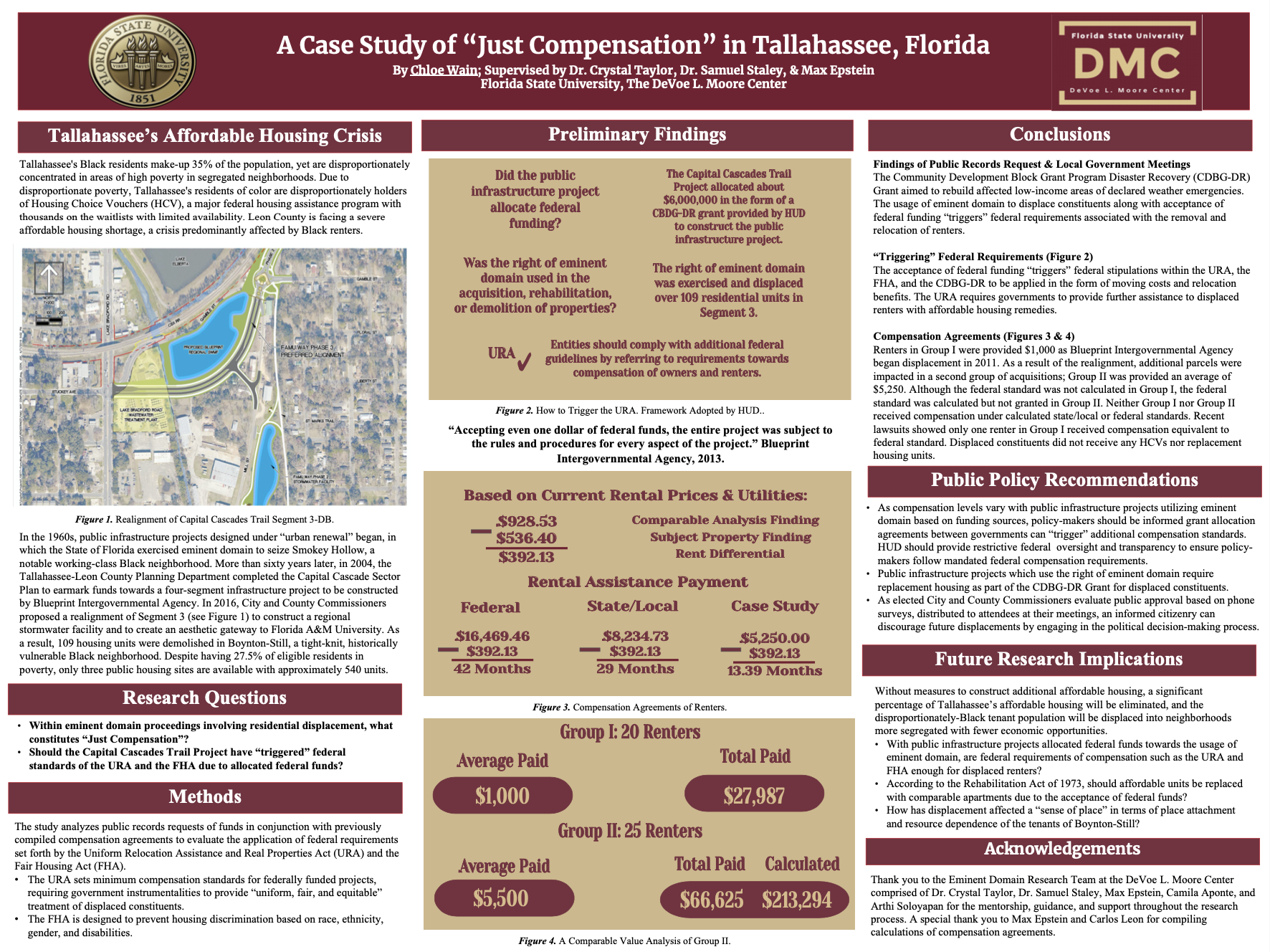Research Symposium
23rd annual Undergraduate Research Symposium, April 6, 2023
Chloe Wain Poster Session 3: 2:45 pm - 3:45 pm/Poster #73

BIO
Chloe Wain is a third year student at Florida State University in the Honors Program pursuing a Dual Degree with majors in Political Science, Editing, Writing, & Media, & Economics with a minor in Spanish. She has pursued leadership, research, and service opportunities to prepare for a career in public service as a Public Defender. As a Legal Intern with do Campo & Thornton, Chloe assisted in representing victims of international terrorism by achieving victim compensation through heavily sanctioning violent terrorism regimes. As an Investigative Intern at the Leon County Public Defender’s Office, Chloe assists in advocating on the behalf of indigent defendants accused of misdemeanors through client in-takes. Involvements at Florida State University includes serving as an Undergraduate Research Opportunity Program Leader & the Appellate Committee of the Academic Honor Policy, Institute of Politics, Global Scholars Program, Honors Legal Scholars Program, & Garnet & Gold Key Leadership Honorary. Chloe has been nominated by Florida State University for the Harry S. Truman Scholarship & the President's Annual Humanitarian of the Year Award. She will be serving as a Trial Investigator with the Public Defender Services for the District of Columbia in Summer of 2023.
A Case Study of “Just Compensation” in Tallahassee, Florida
Authors: Chloe Wain, Dr. Samuel Staley & Dr. Crystal TaylorStudent Major: Political Science, Editing, Writing, & Media, & Economics
Mentor: Dr. Samuel Staley & Dr. Crystal Taylor
Mentor's Department: The DeVoe L. Moore Center Mentor's College: College of Social Sciences & Public Policy Co-Presenters:
Abstract
Residential displacement resulting from large public infrastructure projects can lead to the demolition of close-knit, working class neighborhoods. Such displacement often disproportionately undermines the social and cultural fabrics of Black communities. Local and state governments employ the right of eminent domain to acquire private property for public purposes such as infrastructure and economic development projects. Governments are mandated to provide “just compensation” in the form of moving and relocation benefits to displaced owners and renters of demolished properties. Past literature examines appropriate amounts of compensation for displaced constituents under local, state, and federal requirements to ensure private property rights are protected. This study examines “just compensation” practices by focusing on the displacement of a vulnerable historically Black neighborhood in Tallahassee, Florida. The research evaluates the appropriateness of compensation payments by comparing previously compiled renter compensation agreements to applicable federal regulations, such as: the Universal Relocation Act and the Fair Housing Act. Preliminary findings indicate the City of Tallahassee and Blueprint Intergovernmental Agency, a joint city-county agency, failed to appropriately apply United States Department of Housing and Urban Development’s federal standards. As compensation levels vary based on funding sources, policymakers should be informed about varying compensation standards, provide incentives to empower local citizens to actively participate in government proceedings, and advocate to protect federal standards to encourage the preservation of historically Black neighborhoods.
Keywords: Economics, Eminent Domain, Compensation

